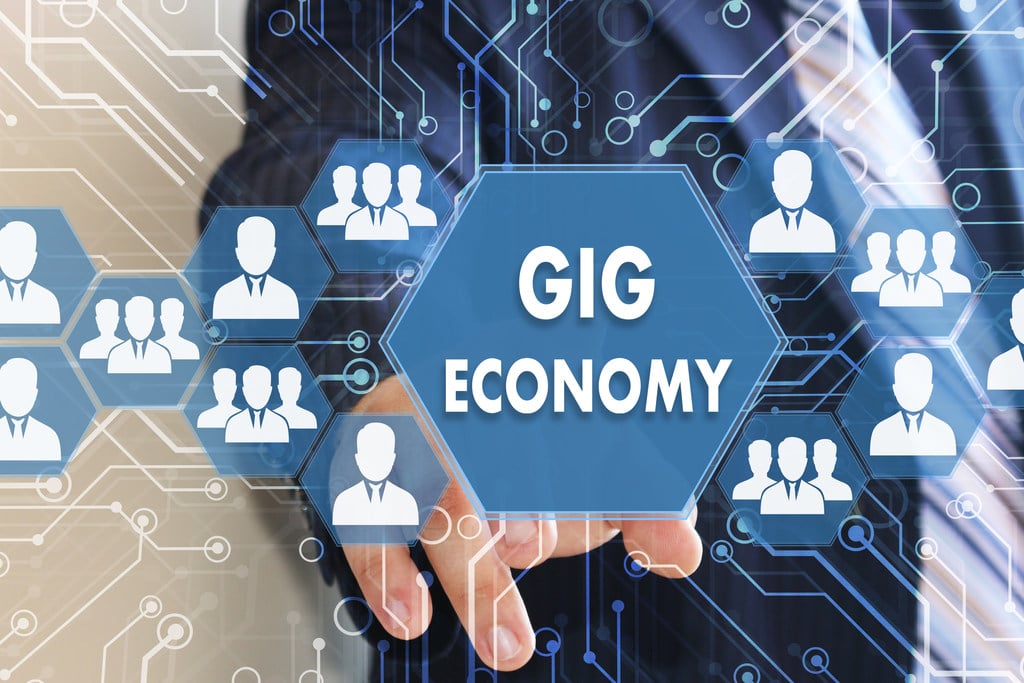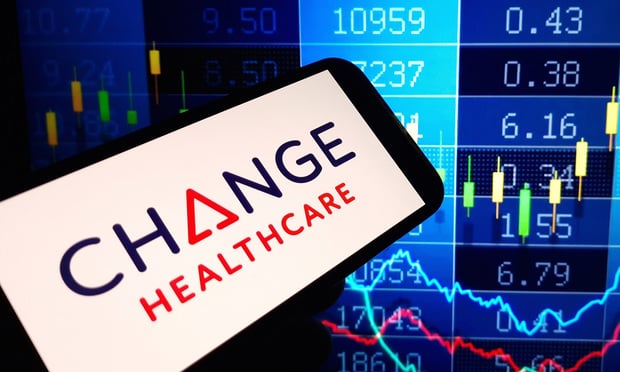 Employers of gig andshort-term workers will have to adjust their business models, orsee a new generation of employers outcompete them. (Photo:Shutterstock)
Employers of gig andshort-term workers will have to adjust their business models, orsee a new generation of employers outcompete them. (Photo:Shutterstock)
The workforce as we know it is changing, plain and simple.Looking for work and need to make money fast? Pick up your smartphone andboot up an app that lets you turn your vehicle into a car serviceor hop on a bicycle to deliver food. You'd be far from the first todo so–according to global consulting firm McKinsey, there are 68 million freelancers orself-employed people in the US today, with around 4 millionAmericans participating in gig marketplaces like Lyft and Postmates. Andfor the first time ever, the number of contract workers at Google exceeded the numberof employees.
|This shift has raised a critical question – should freelance,temp and gig employees be eligible to receive employee benefits? These workers areincreasingly driving the American economy. They may bepart-time employees (if they are employees at all), but theirhealth needs are very much full-time. Chronic conditions likediabetes, or the need to provide health care for your children, donot end when you finish your latest gig. So there is not only aneconomic imperative to ensure gig workers have benefits, but amoral one as well.
|Spend now, save later
When it comes to providing health benefits, HR leaders andbusiness owners should consult the old adage, “you have to spendmoney to make money.” Namely, providing health benefits topart-time and gig-economy workers will actually save companiesmoney in the long run. Sounds counterintuitive, right? Wrong. Doingso combats a key issue that employers face – worker churn.
|Worker churn is expensive, costing roughly 16 percent of an annual salary for low-paying,high turnover jobs. By that estimate, it costs over $3,000 toreplace a retail employee making just $10 an hour. Onboarding new employees, order errors,customer service issues and productivity gaps all add up tomeaningful losses. If companies can reduce churn by just afraction, the costs of benefits pay for themselves.
|This idea of “doing well by doing good” extends to the moralside of providing benefits; these people are not simply youremployees, but human beings with real needs. When their kid'sasthma flares up or their spouse get sick, they can't simply ignoreit. Most will do whatever it takes to ensure that their loved onesget healthy, even turning to others – GoFundMe, a popularcrowdfunding website, recently revealed that one-third of thewebsite's campaigns are to raise money for medical bills. Companiesneed to understand that financial compensation is not the onlyfactor gig workers take into consideration when choosing theiremployment; perks and benefits go a long way in helping themdecide.
|Redefining benefits
So what can employers do now? Many are competing for talent and thinking aboutbenefits, but that's not enough. In order to attract the bestgig-workers, companies must evolve from simply offering“one-size-fits-none” benefits options of yesteryears and learn toembrace the individual, putting control over health directly intoemployees' hands. A key way to implement this is by offeringbenefits through a portable system. The Aspen Institute defines portable benefits ashaving three key characteristics:
- Workers' benefits are not tied to any particular job orcompany;
- Each company contributes to a worker's benefits at a fixed ratedepending on how much he or she works, or earns; and
- Benefits cover independent workers, not just traditionalemployees
This allows workers to access their benefits across a number ofemployment options, providing them flexibility. That reassurancegoes a long way.
|The health benefits structure as we know it won't changeovernight. Employers of gig and short-term workers will have toadjust their business models, or see a new generation of employersoutcompete them. Insurance companies too will have to rethink thebenefits packages they offer for a new category of “employed”workers. And gig workers will need new ways to manage their healthand benefits. But with companies like Caviar covering medical billsfor employees injured on the job and Uber having to classifydrivers as employees regarding unemployment insurance in NY, thetides are beginning to turn in workers' favor.
|The U.S. has a longstanding history of supporting entrepreneursand people who take risks by quitting their jobs, starting theirown companies, working for themselves, etc. But we only support thehealth needs of employees who take full-time positions with asingle employer. As long as this disconnect exists, people will beless inclined to take risks and follow their passion. HR andemployers should embrace the change so that a gig-worker's biggestconcern is which service they will work for that day, and not whatto do if they have a broken bone or dental bill.
 Michael Serbinis is theCEO and Founder of League Inc., a next generation health platform. Priorto League, Michael was the Founder and CEO of Kobo, a global leaderin ebooks, and docSpace, a pioneer in cloud storage. Michael gothis start building one of the first search engines, Zip2 at thestart of the Internet boom.
Michael Serbinis is theCEO and Founder of League Inc., a next generation health platform. Priorto League, Michael was the Founder and CEO of Kobo, a global leaderin ebooks, and docSpace, a pioneer in cloud storage. Michael gothis start building one of the first search engines, Zip2 at thestart of the Internet boom.
Complete your profile to continue reading and get FREE access to BenefitsPRO, part of your ALM digital membership.
Your access to unlimited BenefitsPRO content isn’t changing.
Once you are an ALM digital member, you’ll receive:
- Critical BenefitsPRO information including cutting edge post-reform success strategies, access to educational webcasts and videos, resources from industry leaders, and informative Newsletters.
- Exclusive discounts on ALM, BenefitsPRO magazine and BenefitsPRO.com events
- Access to other award-winning ALM websites including ThinkAdvisor.com and Law.com
Already have an account? Sign In
© 2024 ALM Global, LLC, All Rights Reserved. Request academic re-use from www.copyright.com. All other uses, submit a request to [email protected]. For more information visit Asset & Logo Licensing.








